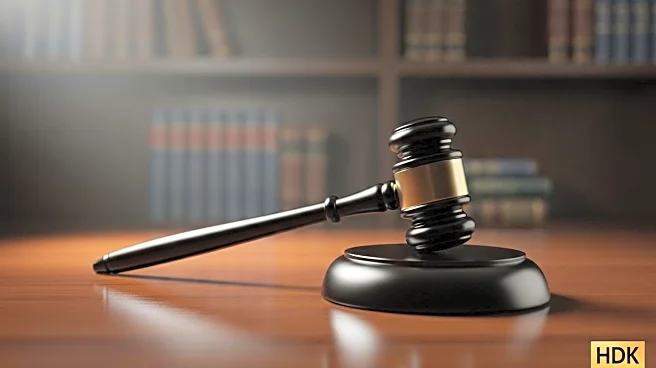What's Happening?
Federal prosecutors are considering indicting former FBI Director James Comey, focusing on allegations that he lied to Congress during a testimony on September 30, 2020. The case is being handled by the U.S. attorney's office in the Eastern District of Virginia, now led by Lindsey Halligan, a former Trump defense lawyer. The indictment is reportedly centered on whether Comey authorized leaks to the media, specifically regarding the FBI's investigation into the Clinton Foundation. The statute of limitations for this charge is set to expire soon, prompting urgency in the proceedings. The situation remains fluid, with the possibility of changes in the case's direction.
Why It's Important?
The potential indictment of James Comey is significant due to its implications for the Justice Department and its handling of high-profile cases. It highlights ongoing tensions between former President Trump and Comey, who was dismissed from his role as FBI Director in 2017. The case could impact public perception of the Justice Department's impartiality, especially given the political undertones associated with the investigation. If pursued, the indictment may influence future congressional testimonies and the accountability of public officials in their statements to legislative bodies.
What's Next?
The decision to indict Comey rests with U.S. Attorney Lindsey Halligan, who can choose to overrule the recommendation against pursuing charges. The outcome of this case could lead to further legal scrutiny of Comey's actions during his tenure as FBI Director. Additionally, the investigation into New York Attorney General Letitia James for mortgage fraud allegations may proceed, potentially affecting her political career. The developments in these cases could prompt reactions from political leaders and influence public discourse on legal accountability.
Beyond the Headlines
The case against Comey raises questions about the ethical responsibilities of public officials and the legal standards applied to their conduct. It underscores the challenges in balancing political pressures with judicial integrity, especially in cases involving former government officials. The situation may also reflect broader issues within the Justice Department regarding the influence of political affiliations on legal proceedings.










